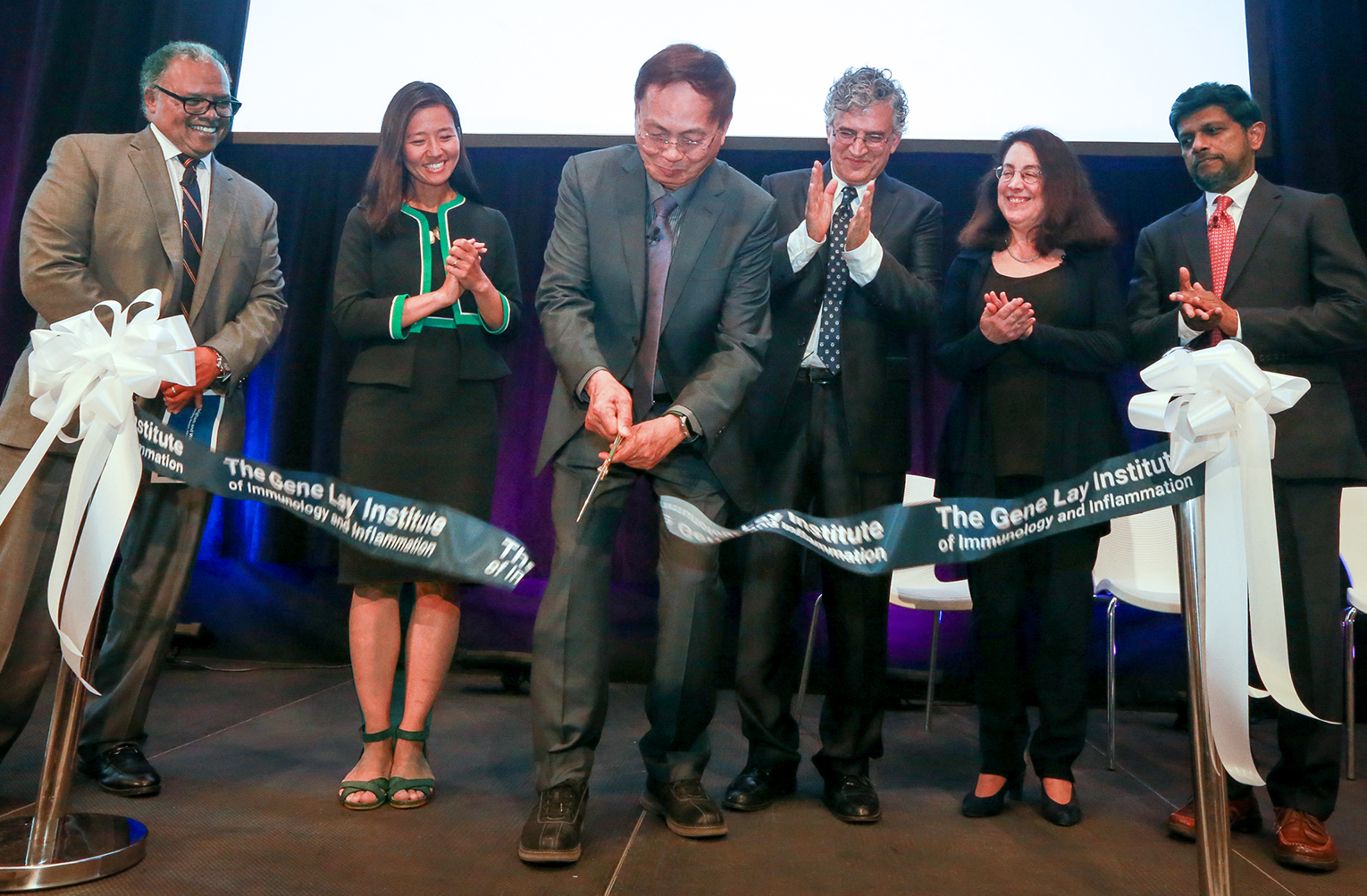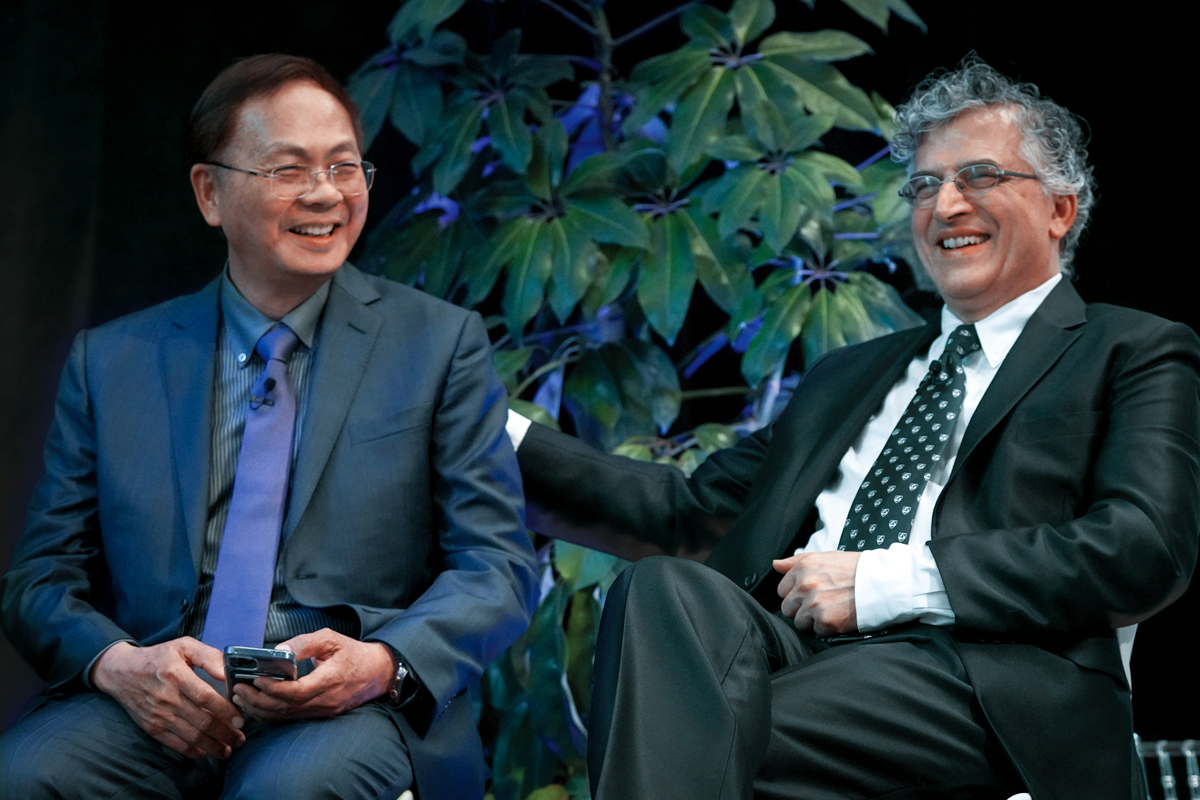$100 million gift establishes The Gene Lay Institute of Immunology and Inflammation

Across the globe, certain medical conditions have skyrocketed in the past 30 years, from allergies to cancers to autoimmune, neurodegenerative, and cardiovascular diseases. As scientists increasingly pinpoint chronic inflammation as the root cause of these conditions, the medical community is urgently calling for better treatments.
Eminent biotechnology entrepreneur Gene Lay, MS, DVM, founder and CEO of BioLegend Inc., believes immunology holds the key to creating new knowledge to solve these growing epidemics. Earlier this year, he committed a historic $100 million gift through the Laygend Foundation to establish The Gene Lay Institute of Immunology and Inflammation of Brigham and Women’s Hospital, Massachusetts General Hospital (MGH), and Harvard Medical School (HMS).
Lay’s landmark gift—the largest in the Brigham’s history—provides resources to assemble a multi-institutional team to study and decipher the puzzles of immune-mediated diseases, immune system aging, and cancers that are unresponsive to cancer immunotherapies. Scientists aim to leverage this knowledge to develop new immunotherapies.
With this gift, I am bringing together the best scientific minds I know to translate research discoveries into therapies.
“I have always been fascinated by the immune system’s ability to heal the body,” says Lay. “And I’ve had a longstanding relationship with and respect for scientists in the Harvard medical community. With this gift, I am bringing together the best scientific minds I know to translate research discoveries into therapies.”
To celebrate The Gene Lay Institute, the Brigham hosted a ribbon-cutting ceremony in June, featuring remarks by Lay, leaders of the new institute, and Boston Mayor Michelle Wu.

Vijay Kuchroo, DVM, PhD, an immunologist and the Wasserstrom Professor of Neurology, is the institute’s inaugural director, joined by vice directors Arlene Sharpe, MD, PhD, chair of the Department of Immunology at HMS, and Ramnik Xavier, MD, PhD, director of the Center for Computational and Integrative Biology at MGH. In addition to uniting researchers, physicians, and patients in the study of chronic inflammation, the institute will train students and fellows to become tomorrow’s immunology innovators.
“This is a historic opportunity,” says Robert S.D. Higgins, MD, MSHA, president of the Brigham, executive vice president of Mass General Brigham, and the Nabel Family Professor of Surgery. “The brightest minds in the Boston biotech community will translate what they learn to save and improve the quality of people’s lives.”
“Collaboration will speed up new drug discovery,” says Lay, who founded the San Diego-based BioLegend in 2002 to develop and produce high-quality antibodies, proteins, and other reagents needed for research and diagnosis. The company has increased its reach across the globe, including Taiwan, where Lay was born, and is now part of Revvity Inc., a global life sciences and diagnostics company.
“We need to slow and ultimately halt this current health threat and prepare for immunological threats of the future,” says Kuchroo, whose friendship with Lay spans more than two decades.
He adds, “Gene has given me a big responsibility. It’s a challenge but also exhilarating in terms of what this gift can do for the future of immunology. Some of the greatest benefactors have made gifts that changed the history of medicine. And this is one of those gifts.”